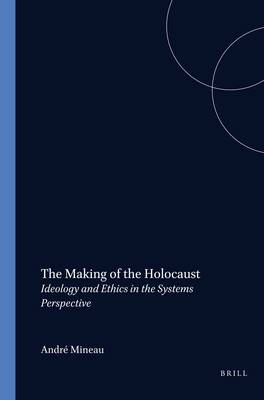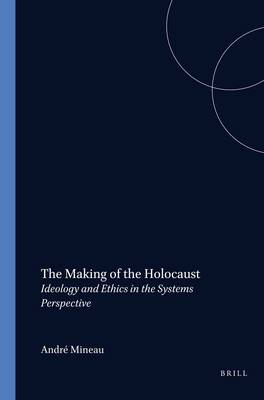
- Afhalen na 1 uur in een winkel met voorraad
- Gratis thuislevering in België vanaf € 30
- Ruim aanbod met 7 miljoen producten
- Afhalen na 1 uur in een winkel met voorraad
- Gratis thuislevering in België vanaf € 30
- Ruim aanbod met 7 miljoen producten
Zoeken
€ 109,95
+ 219 punten
Omschrijving
What made the Holocaust possible? What does it mean from a moral viewpoint? These two questions constitute the main focus of this book. Through concepts borrowed mostly from systems theory, an attempt is made at establishing a theoretical framework for a broad understanding of the genesis of the Holocaust. More specifically, the relationships between ideology, political power, and genocide are discussed, and the following topics are covered: (1) the constitution and the historical evolution of the ideology of the Holocaust, through the genesis of anti-Semitism, the impact of the modern paradigms, and the apparent peculiarities of Nazism; (2) the emergence of powerful means of action designed for implementing the ideology, in the context of totalitarianism; (3) control and freedom as the basic parameters in a decision-making process that went along with a «diffuse Holocaust» phase and generated mechanisms of extensive cooperation; (4) the values and norms that made sense to the Nazis in relation to the Holocaust, with a critical assessment of Nazi ethics insofar as it aimed at subverting the concept of evil and at destroying the self. This book deals with four key dimensions of the Holocaust: ideology, power, act, and meaning.
Specificaties
Betrokkenen
- Auteur(s):
- Uitgeverij:
Inhoud
- Aantal bladzijden:
- 220
- Taal:
- Engels
- Reeks:
- Reeksnummer:
- nr. 81
Eigenschappen
- Productcode (EAN):
- 9789042007055
- Verschijningsdatum:
- 1/01/1999
- Uitvoering:
- Paperback
- Formaat:
- Trade paperback (VS)
- Afmetingen:
- 150 mm x 220 mm
- Gewicht:
- 385 g

Alleen bij Standaard Boekhandel
+ 219 punten op je klantenkaart van Standaard Boekhandel
Beoordelingen
We publiceren alleen reviews die voldoen aan de voorwaarden voor reviews. Bekijk onze voorwaarden voor reviews.











